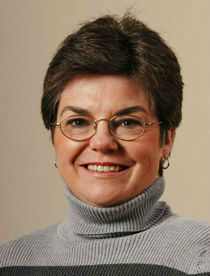
Spirituality
We're frequently reminded of the mental health crisis in our country, especially among our youth.

Caldarola
It was hard to find joy in the day. Rain pelted the morning windows incessantly. I burrowed under the covers and, grasping for gratitude, told myself it was good we were getting needed moisture.
After the rain came unremitting gloom, strong winds and falling temperatures. When baking cinnamon rolls brought no respite from my sour feelings, I was consoled by the fact that I was experiencing what we all do occasionally: a temporary down day. A bad "mood" that would pass.
Then I thought of John Fetterman. This freshman U.S. senator from Pennsylvania checked himself into Walter Reed National Military Medical Center in Bethesda, Maryland, on Jan. 15 for the treatment of clinical depression.
Fetterman, 53, had suffered a serious stroke right after winning his Democratic Party primary in 2022. According to the American Stroke Association, depression is a common byproduct of stroke.
We should all applaud Fetterman for acknowledging his illness and for being so upfront and candid. "Transparency" is something urged upon us -- upon the church, the government, all our institutions -- and yet it's often in rare supply. Fetterman was candid, not just about this recent depression, but about his past episodes of depression.
We're frequently reminded of the mental health crisis in our country, especially among our youth. It's hard to measure, but the Centers for Disease Control's parent survey suggests that 15 percent of youth ages 12-17 had experienced a major depressive episode in the time preceding the 2018-19 survey. 36.7 percent of these youth had persistent feelings of sadness or hopelessness.
Also from the CDC, more concrete evidence of crisis: Suicide was the 12th leading cause of death in 2020, and, I read with horror, the second leading cause of death for children ages 10-14.
Beyond these numbers are real people, and a hopefully changing attitude toward mental health issues.
It's been 50 years since George McGovern's choice of a vice presidential running mate was jolted by revelations of mental illness. Thomas Eagleton was a Missouri senator who, only after accepting the nomination, revealed he had been hospitalized for depression years before and had received electric shock treatment. These revelations crushed his candidacy. Mental illness was an unacknowledged issue back then, covered up, like being gay or having an extramarital affair.
My own dad was hospitalized about the same time as Eagleton, and he too received electroconvulsive shock treatment. I was too young to understand the stigma of mental health treatment then, and how tough it must have been for Dad, a Midwestern farmer, to seek help.
One group of young people struggling right now are those who are coming to grips with their gender identity. Gay, lesbian and transgender youth often fall prey to isolation, marginalization, depression and suicide.
Being a teenager is challenging under any circumstances. Imagine how much harder it can be for a teen experiencing gender issues.
In his essay on synodality, Cardinal Robert McElroy talked about "radical inclusivity" and quoted the Italian synod report: "The church-home does not have doors that close, but a perimeter that continually widens."
As Catholics, we have the opportunity to follow our first law of love, while without denying church teaching. We're all called to love unconditionally, to be the Prodigal's father welcoming with open arms, to open our doors to a wider perimeter.
Remember that old saying, "Be kind. Everyone you meet is fighting a hard battle."
That's true whether we're just having a bad day, or whether we're silently fighting the throes of depression or other mental illness. We need each other, whether we're a freshman U.S. senator or a 13-year-old freshman in high school.
EFFIE CALDAROLA IS A WIFE, MOM AND GRANDMOTHER WHO RECEIVED HER MASTER'S IN PASTORAL MINISTRY FROM SEATTLE UNIVERSITY.
- Effie Caldarola is a columnist with the Catholic News Service.
Recent articles in the Spirituality section
-
Masters week foreknowledgeMichael Pakaluk
-
Why is Lent 40 days?Michael Pakaluk
-
The eloquent ambiguity of 'I believe'Bishop Robert Barron
-
You don't get what you pay forMichael Pakaluk
-
The witness of a consecrated lifeBishop Robert Barron























